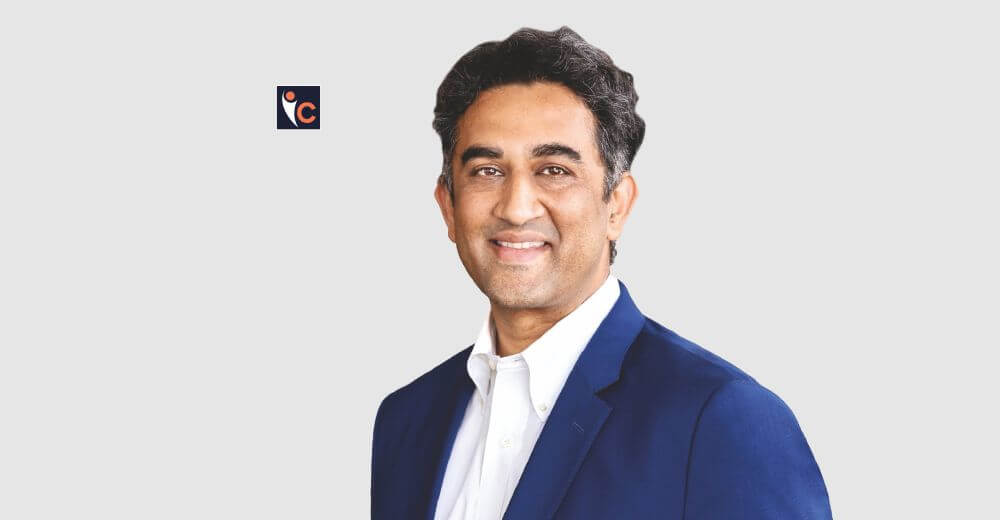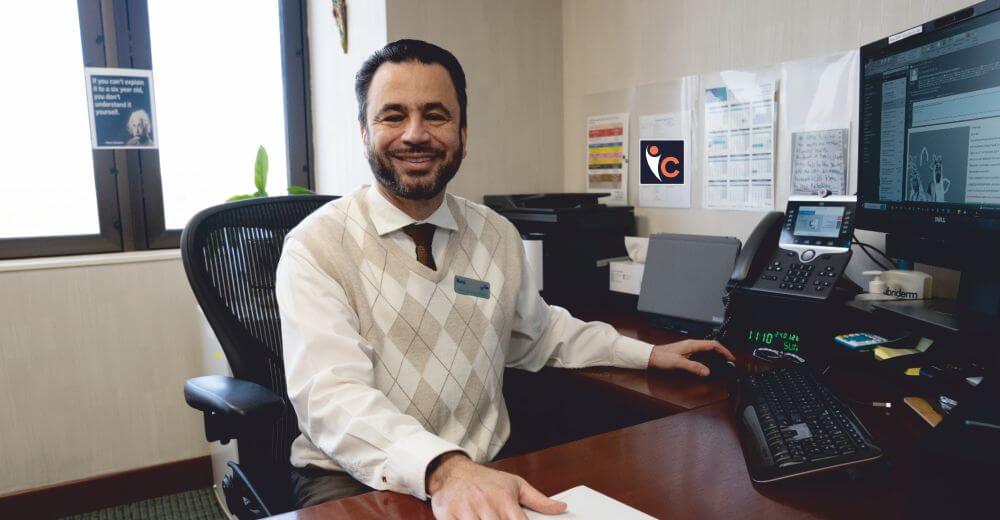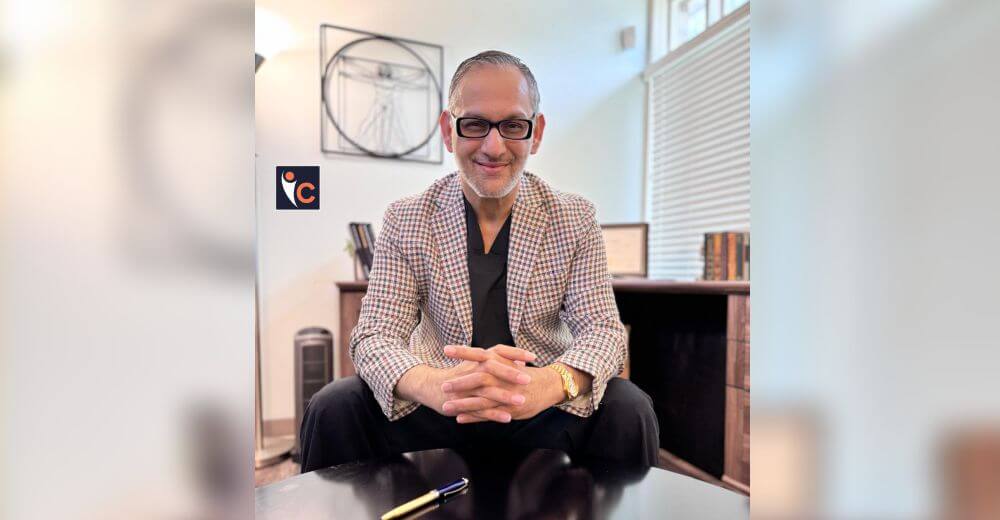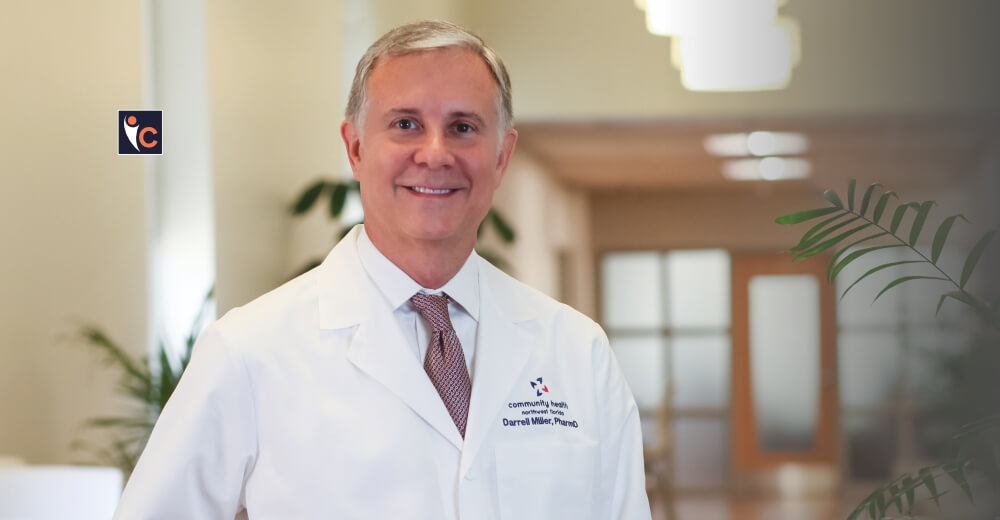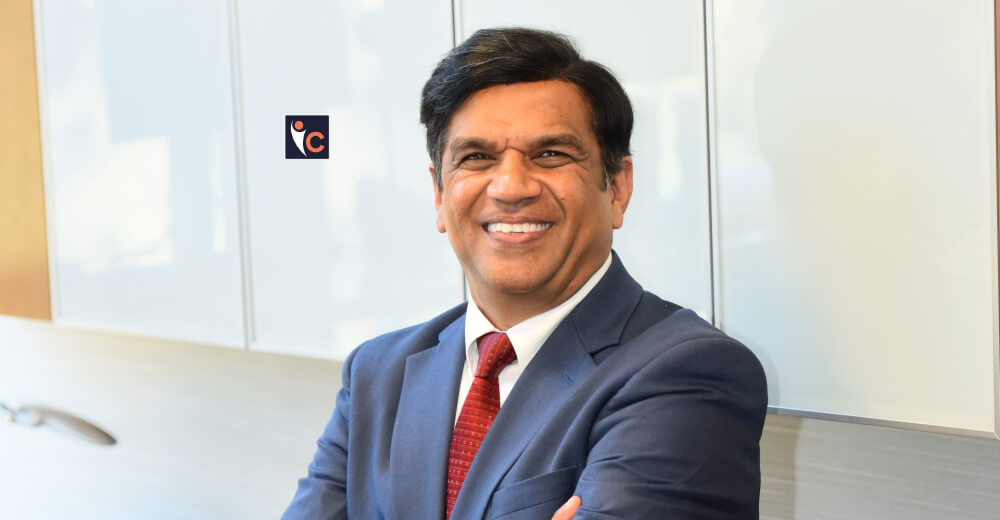Creating a healthier world is not just an aspiration but a shared responsibility. Fortunately, there is a path forward that intertwines sustainability and human ingenuity, paving the way for a brighter future. As the threats posed by climate change loom larger than ever, organizations worldwide are recognizing the imperative to address climate risk and adopt sustainable practices. It is in this landscape that leaders like Joydeep Ganguly, the Senior Vice President of Global Operations at Gilead Sciences, have emerged as beacons of hope and inspiration.
Joydeep Ganguly understands that the challenges we face in preserving our planet go hand in hand with the need to create a healthier future for all individuals. With a deep-rooted belief in the power of innovation and collaboration, he has led Gilead Sciences in its quest to transition to a low-carbon future, all while making a positive impact on the lives of underserved and at-risk populations.
Under Joydeep’s thoughtful leadership, Gilead Sciences has taken significant strides in reducing its carbon footprint and promoting sustainability across its global operations. Recognizing that the healthcare sector has a significant environmental impact, he has spearheaded initiatives to implement renewable energy sources, optimize supply chains, and minimize waste generation. By doing so, Gilead has not only become a pioneer in climate risk management but has also set a new standard for corporate responsibility in the pharmaceutical industry.
As we navigate the complex challenges of climate change and its impact on public health, leaders like Joydeep Ganguly serve as catalysts for change. Through his steadfast commitment to sustainability and his unwavering focus on improving the lives of the underserved, Joydeep has emerged as one of the top leaders in climate risk management.
Let’s dive into learning about Joydeep’s dedication to creating a healthier world for all people as we collectively strive toward a sustainable and equitable future.
Joydeep Ganguly in Brief
Joydeep Ganguly is a Senior Vice President, Corporate Operations at Gilead Sciences. In his current role, he is accountable for several strategic functions, including corporate engineering; capital and infrastructure strategy; corporate real estate; risk management; operations research and global procurement. Serving as the Chief Sustainability Officer for the organization, Joydeep also leads Gilead’s environmental sustainability strategies globally.
Before Gilead, Joydeep spent 10 years at Biogen in roles of increasing responsibility in technical operations, manufacturing and supply chain. In his role as Vice President and Site Head of Biogen’s North Carolina sites, he oversaw the company’s multi-scale biologics operations and led general operations for the company’s presence in North Carolina.
A transformational thought leader in the operations space, he has published extensively about operations transformation, bioprocess optimization and supply chain evolution. The International Society of Pharmaceutical Engineering (ISPE) recognized Joydeep with the Roger Sherwood Journal Article of the Year for his publication about the application of innovative process analytics within operations, an area in which he remains active and holds multiple patents.
He currently serves on the Board of Directors for the Bay Area Council, Biocom, the Gilead Foundation and North Carolina State University’s Supply Chain Research Consortium. He was also recently appointed to the Board of Advisors for Culture Biosciences. He was recently recognized as a Top 50 Diverse Leader in California and was also awarded the Leadership Excellence Award from the National Diversity Council – awards that distinguish a select group of executive leaders that exceed the scope of what is expected in their organizations and communities.
Journey So Far
Joydeep grew up in India, doing his formative education in Pune. He did his undergraduate studies in Electrical Engineering in India, graduating with the highest grade (Distinction), and was awarded the prestigious Best Outgoing Student award in the university. He then came to the U.S. for graduate school at the University of Notre Dame where he completed his MS in Electrical Engineering, focusing his research thesis in the area of Multivariable and Advanced Process Control in complex networked systems.
Joydeep’s first job was in the Informatics and Process Control group before moving to different parts of the organization in various roles (e.g., Project Engineering, Process Analytics). Subsequently, he joined Biogen to start up their Advanced Process Control team. “For most of my career, I’ve focused heavily on learning and gaining experiences through different assignments. At Bayer, I moved from Informatics to Project Engineering, eventually heading up their Process Analytical Technology (PAT) group. When I joined Biogen, I started in their MSAT (Manufacturing Sciences and Technology) them and had stints in Supply chain, Manufacturing, eventually leading a 3000-person Global Technical Operations organization. I joined Gilead in 2016 to lead the Corp Engineering and Facilities function, but have always taken on assignments that exposed me to other parts of the value chain. My current job is a great blend of operational functions and strategic areas, all of which have an enterprise impact, which has been my motivating factor in all career moves I’ve made,” says Joydeep.
Placing a heavy premium on continuous learning, Joydeep has gone back to school twice during his working career, to better appreciate the breadth of the biotech value chain. While at Biogen, he completed his MBA from NC State, where his interest in sustainable supply chain design was nurtured. He recently completed a master’s in healthcare administration from Cornell University – a course of study that was motivated by his desire to understand the area of health equity more deeply – where he received the prestigious Cornell Sloan Student Service award.
Venturing into Climate Risk Management
Gilead Sciences, Inc. is a biopharmaceutical company that has pursued and achieved breakthroughs in medicine for more than three decades, with the goal of creating a healthier world for all people. The company is committed to advancing innovative medicines to prevent and treat life-threatening diseases, including HIV, viral hepatitis and cancer. Gilead operates in more than 35 countries worldwide, with headquarters in Foster City, California.
“Since Gilead was founded 35 years ago, our work has improved the health of millions of people worldwide. We believe – and have demonstrated – that today’s bold ambitions lead to tomorrow’s breakthroughs. That’s why we go after our ambitions with grit and passion, united in our commitment to continuously improve the lives of patients and the health of the world,” adds Joydeep.
Inspiration Behind
Since its inception in 1987, Gilead has operated with Environmental, Social and Governance (ESG) principles as an integral part of its business. While the term “ESG” is relatively new, Gilead’s business practices over 35 years have always reflected ESG themes in its mission to create a healthier world for all people. Joydeep states, “We have continued to evolve our approach to ESG over time, and today we think about it across three core pillars:
- Innovating for Unmet Needs
- Empowering People and Communities
- Sustaining Our Shared Planet
These pillars, along with a robust governance structure and commitment to the highest standards of ethical conduct, enable Gilead to deliver shareholder value in a sustainable and responsible manner.”
ESG Strategy for Attaining Sustainable Goals
Joydeep aligns operations with the ESG strategy that is designed to integrate with and drive progress toward achieving Gilead’s corporate ambitions. He states, “Our commitment to ESG topics plays a critical role in helping us achieve our mission in a way that is socially responsible and environmentally sustainable. We recognize the urgency to mitigate the threat of climate change and we are committed to doing our part to transition to a low-carbon future. The impact of climate change on underserved and at-risk populations has enormous implications for global health and we consider protection of the environment and the fight against climate change to be an important component of our mission.”
He continues, “We recognize that climate change presents potential risks and opportunities to our business operations, and we are continuing to evaluate what risks exist and whether their relative significance for our business. Risks considered include business continuity implications of physical climate factors such as wildfire, extreme heat and severe weather events; the relevance to our corporate reputation and increased concern about climate change among our investors, employees and other stakeholders. We have also identified climate-related opportunities, including cost savings related to energy efficiency investments. We additionally see opportunities to increase our business resilience over the longer term by integrating climate considerations into our strategic decision-making.”
While Gilead continues to evaluate the strategic implications of climate-related risks and opportunities for our business, they have taken a very strategic view to Sustainability by integrating investments to reduce GHG emissions and deliver on sustainability targets into their financial planning, including annual site operating budgets and capital expenditures. By doing so, they’ve established a “sustainable-by-design” approach to every new project they undertake.
Sustainability Practices at Gilead
“At Gilead, sustainability is woven into the fabric of our being,” emphasizes Joydeep. “We believe there’s a sustainable way to execute every business practice, and that mindset motivates all our actions – from embedding green principles into 100% of our 2022 building projects to making the conscious choice each day such as whether to walk, bike, shuttle, or drive an EV to work.”
He continues, “Our approach not only guides what we do within Gilead, but it also influences and inspires others to join us, including as partners in our communities and our efforts to advance sustainable operations across the pharmaceutical industry.”
In terms of sustainability practices, Joydeep and the team has set a range of targets across their four sustainability practice areas:
Carbon
- Reduce Scope 1 and 2 and GHG emissions by 46% by 2030[1]
- Reduced Scope 3 GHG emissions by 15% by 20301
- Transition 100% of fleet vehicles to electric or low emissions vehicles and increase charging infrastructure by 2030
- 100% renewable electricity in operations by 2025 (RE100)
- Achieve carbon net-zero operational GHG emissions by 2030
Water
- Achieve water neutrality in water-stressed regions by 2030
- Reduce potable water use at owned facilities by 30% by 20301
Waste
- Reduce total waste generation by 20% by 20301 (non-hazardous only, excludes construction and demolition waste)
- Achieve zero waste to landfill status at owned facilities by 2030; Foster City to achieve this by 2025 (may exclude leased facilities)
- Eliminate single-use plastics by 2025 (excludes manufacturing and R&D operations)
Product
- 100% product packaging widely recyclable or reusable, including the elimination of all unnecessary plastics[2], [3]
- Use 30% post-consumer recycled content in all plastic packaging by 20252, 3
- Use 70% recycled content paper from sustainability-managed forests by 20252, 3
Assessing Climate-Related Risks
The processes used to identify, assess and manage climate-related risks are a joint business function and corporate oversight responsibility. At Gilead, climate-related risks are routinely updated, and reported to the Corporate Social Responsibility Committee, as part of routine governance. In addition to the individual attention provided to climate-related risks by the Board Audit Committee, these risks are also considered holistically as part of the overall company’s risk landscape, and their relative impact is included in the ERM assessment results reported to the Board and Gilead Leadership Team (GLT).
“Gilead continuously monitors our operations to reduce potential or actual negative material impacts, both internal and external. Business leaders with direct oversight over each topic area are responsible for managing these impacts, and internal and external stakeholders conduct annual evaluations to identify strengths and areas for improvement,” adds Joydeep.
He continues, “As part of the business function responsibility for risk assessment, climate-related risks relevant to our direct operations are examined using a third-party environmental and climate risk database. This assessment involves physical acute (e.g., severe storm, wildfire) and chronic (e.g., future heat stress, sea level rise) hazards as well as contextual (e.g., adaptive capacity) and transitional (e.g., carbon policy) risks of potential relevance for our business.”
Speaking of suppliers, Joydeep highlights, “Gilead’s supply chain includes hundreds of direct suppliers and thousands of indirect suppliers across the globe. We expect our suppliers and business partners to share our commitments to ethics and compliance and to read, understand and follow the Supplier Code of Conduct. And we recognize and reward partners that work with us on common goals related to climate risks.”
Translating Pledges into Action
“To realize our vision of a low-carbon future, hold ourselves accountable, and track our progress along the way, Gilead set ambitious science-based emissions reduction targets in 2021 for our own operations (Scope 1 and Scope 2) and our supply chain (Scope 3),” mentions Joydeep. “After a comprehensive review process, we received validation for these targets from the Science Based Targets initiative (SBTi). With our SBTi-validated goals, we have taken our place alongside leading companies in the fight against climate change. We have also committed to transitioning our operations in line with a net-zero pathway by 2030, reducing Scope 1 and 2 emissions where technologically and financially feasible and addressing residual emissions.”
He continues, “Some specific projects initiatives with a positive impact on our overall sustainability goals include:
- Optimizing our HVAC systems, which has resulted in an annualized savings/avoidance of 17.9 million kWh.
- Installing additional solar capacity into our Cork, Ireland manufacturing facility that will generate 584 MWh of electricity annually and avoid 248 metric tons in greenhouse gas emissions.
- Aligning on a responsible growth strategy that involves designing, constructing and operating facilities that meet the highest level of sustainability performance. In the past seven years, the number of facilities with green-building certifications has increased from zero to 20, with 18 projects certified in the last three years.
- Adopting ambitious waste reduction targets in our manufacturing and operations. In 2022, 47 percent of the targeted single-use plastics were eliminated from Gilead sites.”
A notable way Gilead is also focusing on Sustainability, is its commitment to embed it into research and development operations within its campuses. “Gilead is committed to making the research and development of our pharmaceuticals as sustainable as possible. Laboratories have traditionally been resource-intensive environments,” says Joydeep.
“To ensure that our labs are as environmentally sustainable as possible, Gilead has partnered with the nonprofit group My Green Lab®. This organization, run by scientists, for scientists, seeks to improve the sustainability of scientific research fundamentally and permanently.” Gilead has five labs that have successfully completed the rigorous My Green Lab sustainability certification program.
“Gilead is also dedicated to ensuring its individual products are made in ways that are less resource-intensive and safer for the environment. One example of this approach is with one of its oncology products. Producing this treatment requires the use of chromatography, a process for separating components of a mixture. Gilead has enhanced the manufacturing process and in doing so, has reduced the usage of silicates and solvents significantly, thereby reducing its environmental footprint.”
Leveraging Technology as a Catalyst to Accelerate ESG Progress
“Climate risk can manifest in many aspects within our business,” says Joydeep. “We continue to evolve our approaches to new technologies—both hard and soft—to reduce our vulnerability to climate change. We continue exploring hard technologies that include innovative solutions to implement onsite renewable technologies. We use soft technology to inform our climate risk scenario analyses to raise awareness and build capacity within our operations.”
He highlighted, “As companies look to define ESG ambitions, there are many operational strategies that can help support, catalyze and accelerate progress by leveraging digital transformation, and Pharma 4.0 frameworks are one such strategy. As we considered ways to improve carbon stewardship, we experienced challenges diagnosing root case inefficiencies in our most energy-intensive lab facilities. We identified the opportunity to use the power of predictive data science to create a power prediction program that finds root causes of variances down to the equipment submeter. This has resulted in many benefits, including lower carbon emissions, fewer energy spikes, lower energy waste and lower grid strain.”
Looking Ahead – the Opportunity Space
Reflecting upon the sustainability challenges at Gilead, Joydeep emphasizes, “The vast majority of the emissions footprint associated with our company falls outside of our operational control. Known as Scope 3, these are the greenhouse gases emitted by our suppliers and through other value chain activities.”
“Because we are so reliant on external networks, we have made our suppliers a central component of attaining our goals. Our meaningful engagement with key suppliers will go a long way toward reducing our Scope 3 emissions 15% by 2030 (using 2019 as a baseline).”
He continues, “In 2022, we surveyed 111 suppliers representing 59% of the greenhouse gas emissions related to our modeled Scope 3 purchased goods and services. We are currently in the process of analyzing supplier responses to our emissions survey, which we use to assess how advanced suppliers are in understanding and reducing their emissions. Among those surveyed, we have identified specific suppliers to further engage with, and our focus is to work with them to incorporate low-carbon transitions and reduction plans into their operations.”
Looking ahead to 2023, Joydeep briefs on Gilead’s endeavors, highlighting, “Gilead is excited about several trends in space, including using digital avenues to transform our approach to sustainability. We also are seeing great success by aligning goals from the top down and building out advocacy and programming from the bottom up. Lastly, we are seeing trends towards corporations increasing collaborations by leveraging common infrastructure.”
“Our decision to invest in digital capabilities to drive efficiency and make significant strides in sustainability will be transformational for Gilead in the long term. In the near term, leveraging digital approaches has already resulted in significant benefits.”
Joydeep reflects on recent examples that include implementing operations technologies that have dramatically reduced costs and emissions from high energy-intensive equipment by determining optimal functioning conditions. His team has also made investments in data-driven approaches to real estate design to streamline construction processes and eliminate waste. The investments in technologies have already begun paying off – a recent case study where the team used AI/ML-powered optical sensors to identify utilization insights (e.g., heat maps, trends, density averages, and employee counts) within buildings enabled them to defer new construction of infrastructure, which lead to a meaningful impact on their GHG goals.
Attaining Recognition
Through thoughtful leadership and a commitment to action, Gilead has attained several ESG achievements. Below are highlights from 2022:
- LEED Platinum certification achieved for the Employee Wellbeing Center and LEED Silver at two additional sites
- Named as a CDP Supplier Engagement Leader for actions to reduce climate risk within our supply chain
- Admitted to Dow Jones Sustainability World Index for the second consecutive year
- Ranked No. 1 Most Sustainable Biotech Worldwide by Corporate Knights
- Ranked No. 9 among pharma and biotech companies by Bloomberg/CNBC’s JUST Capital
As Gilead continues pursuing ambitious ESG goals, the company does so with a spirit of hope. “We are actively working to weave climate science leadership into our company’s culture,” says Joydeep. “Our work to integrate sustainability and operational excellence into our ways of working is ultimately in service of the mission that unites all of us at Gilead, which is to create a healthier world for all people.”
[1] Compared to 2019 baseline
[2] Excludes primary packaging
[3] Where quality and safety permit
| Next Story: https://insightscare.com/jessica-harvey-leading-the-charge-as-barclays-plcs-climate-management-strategist/ |











